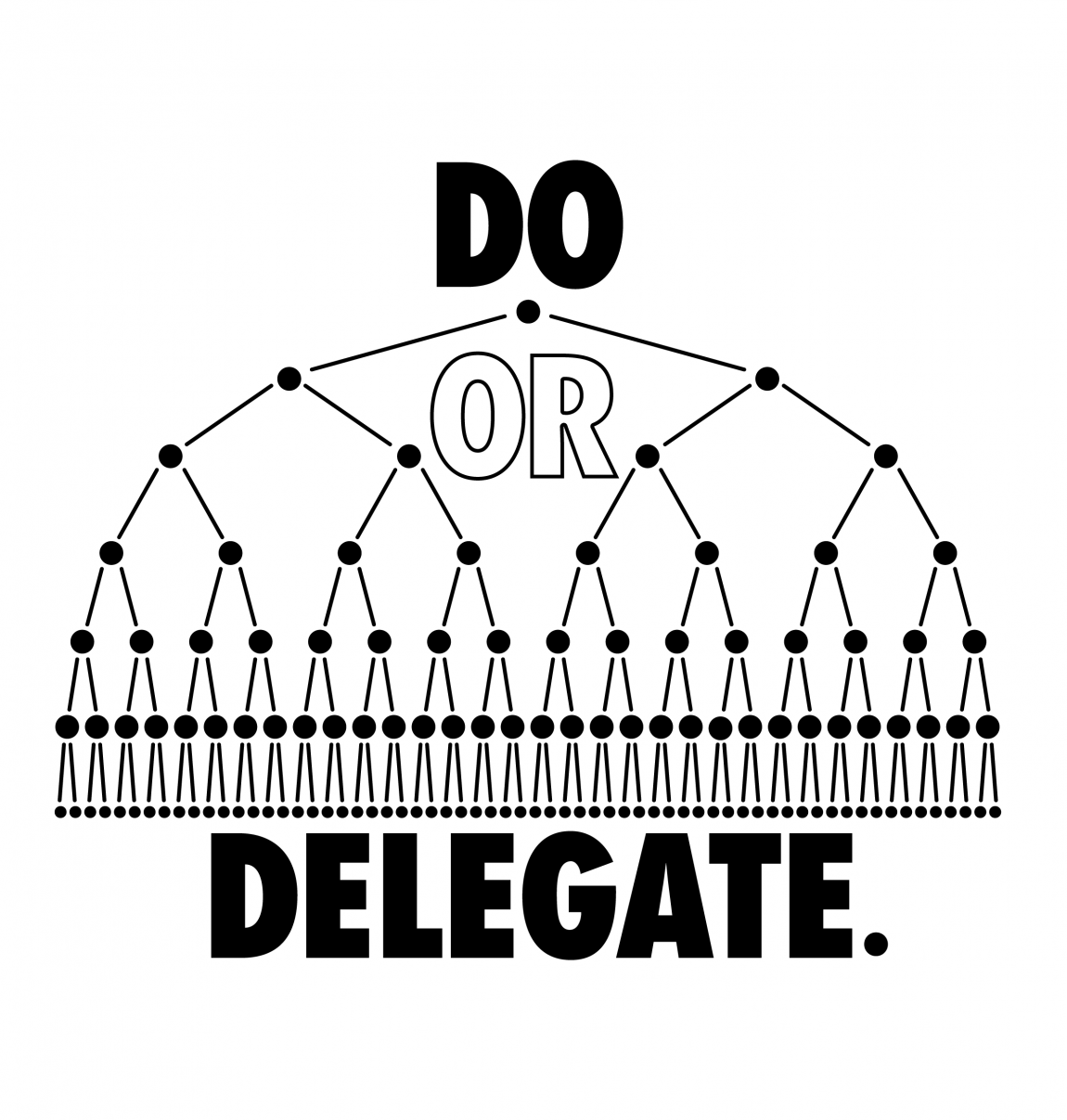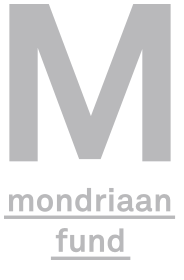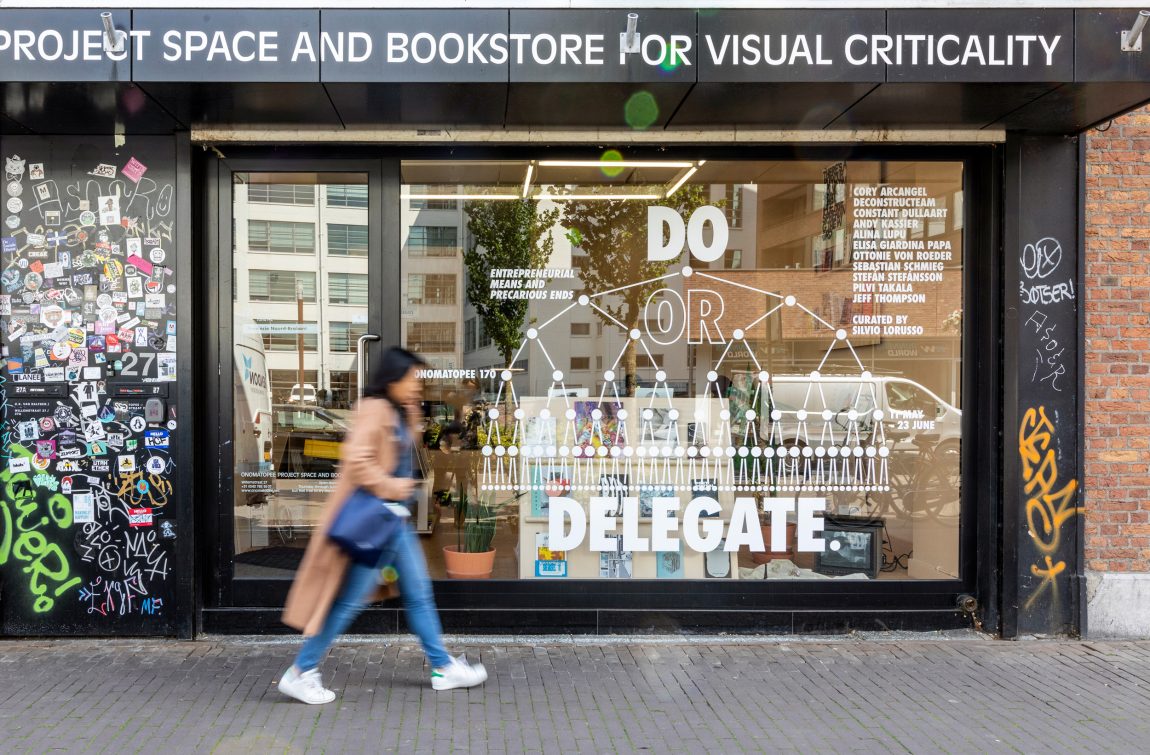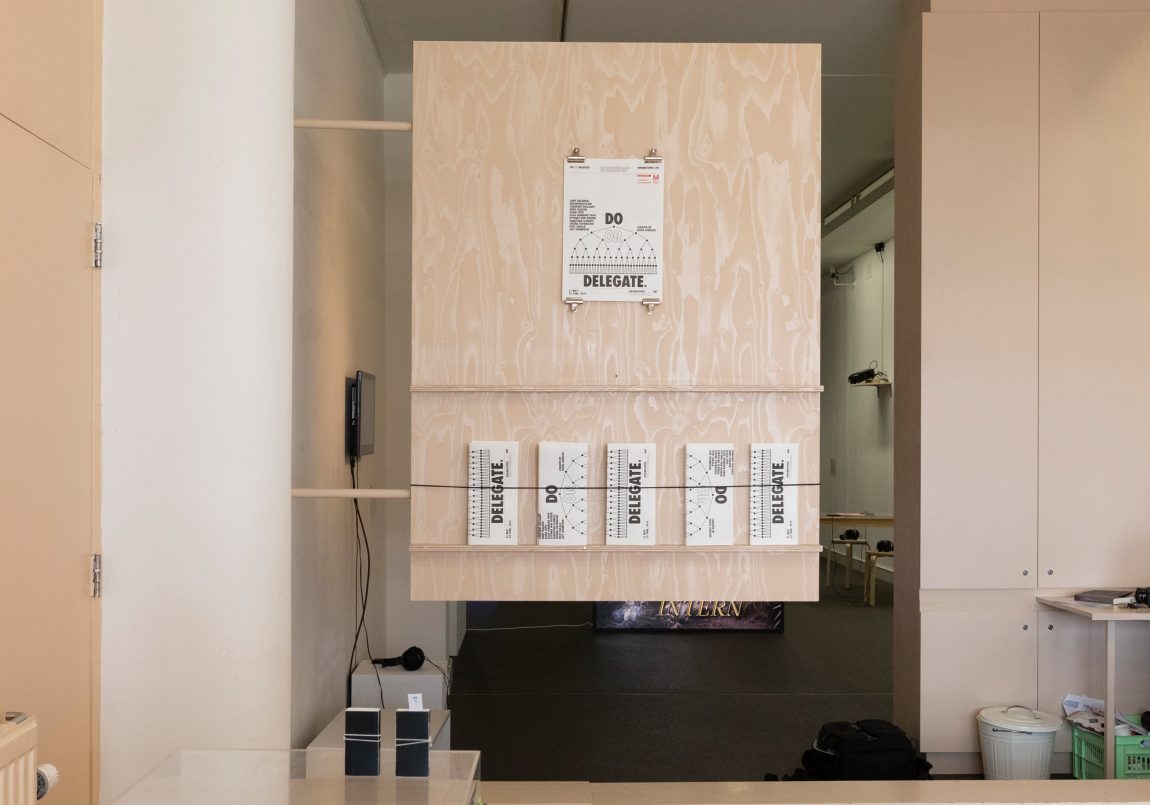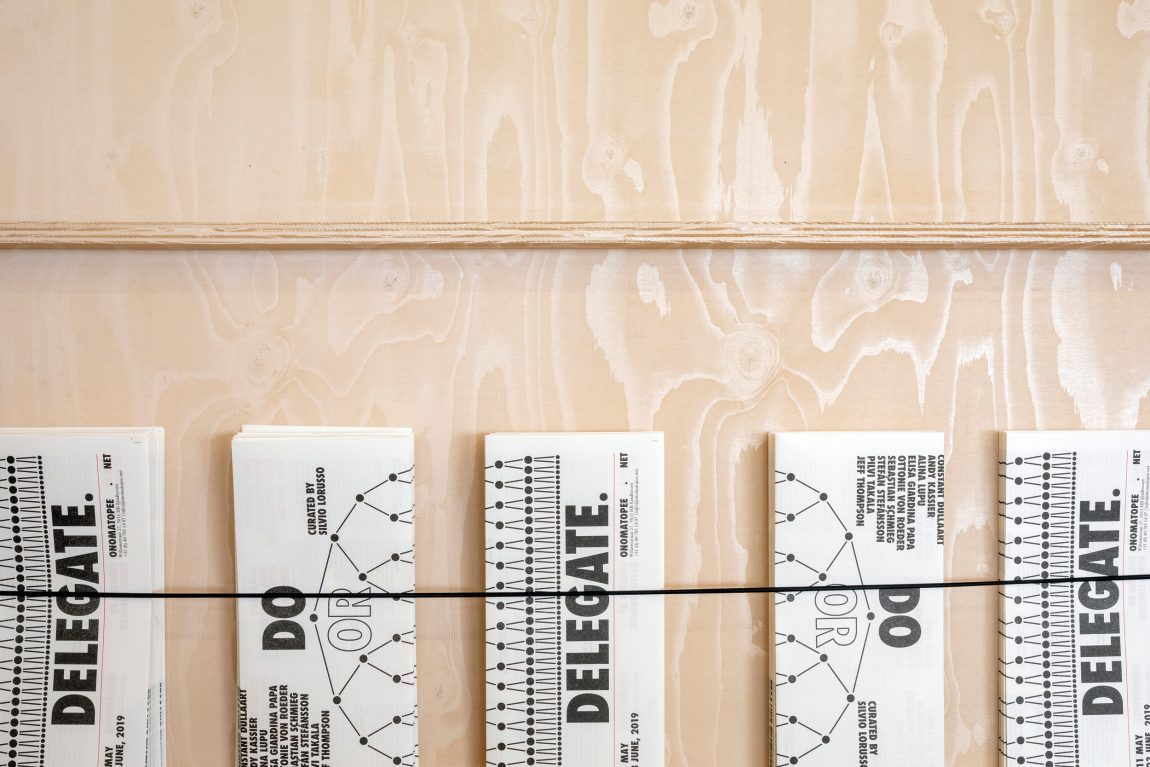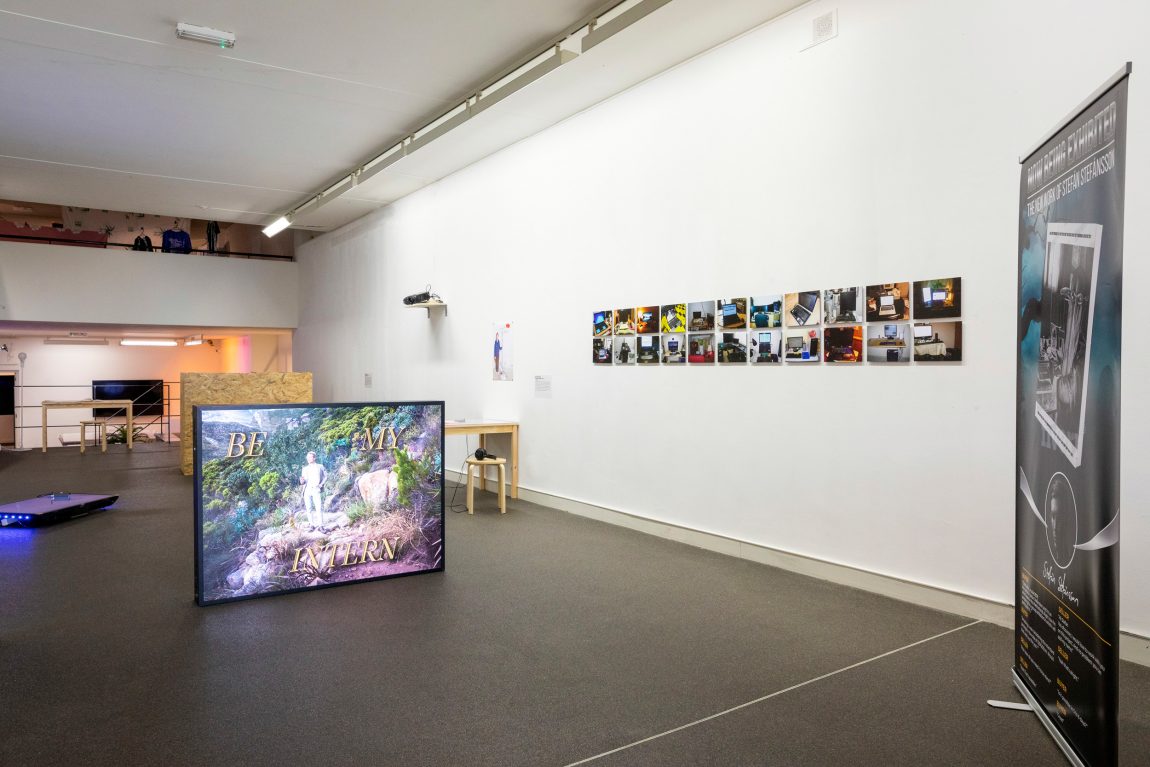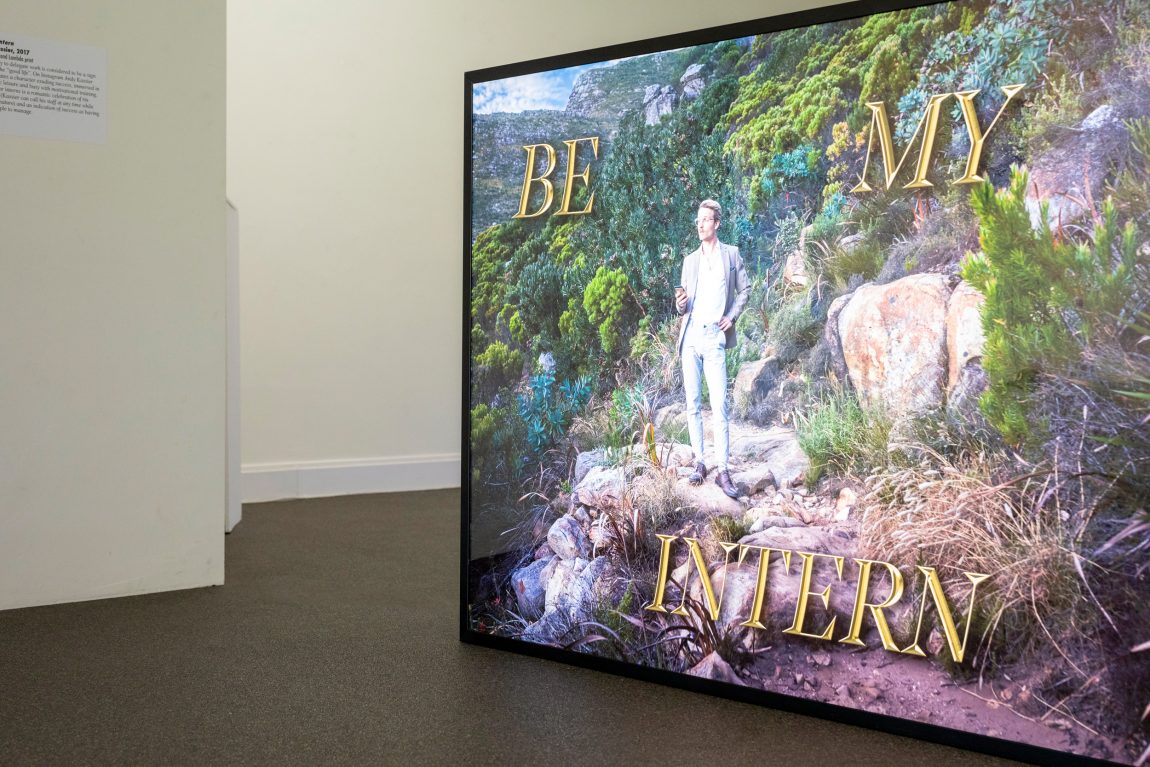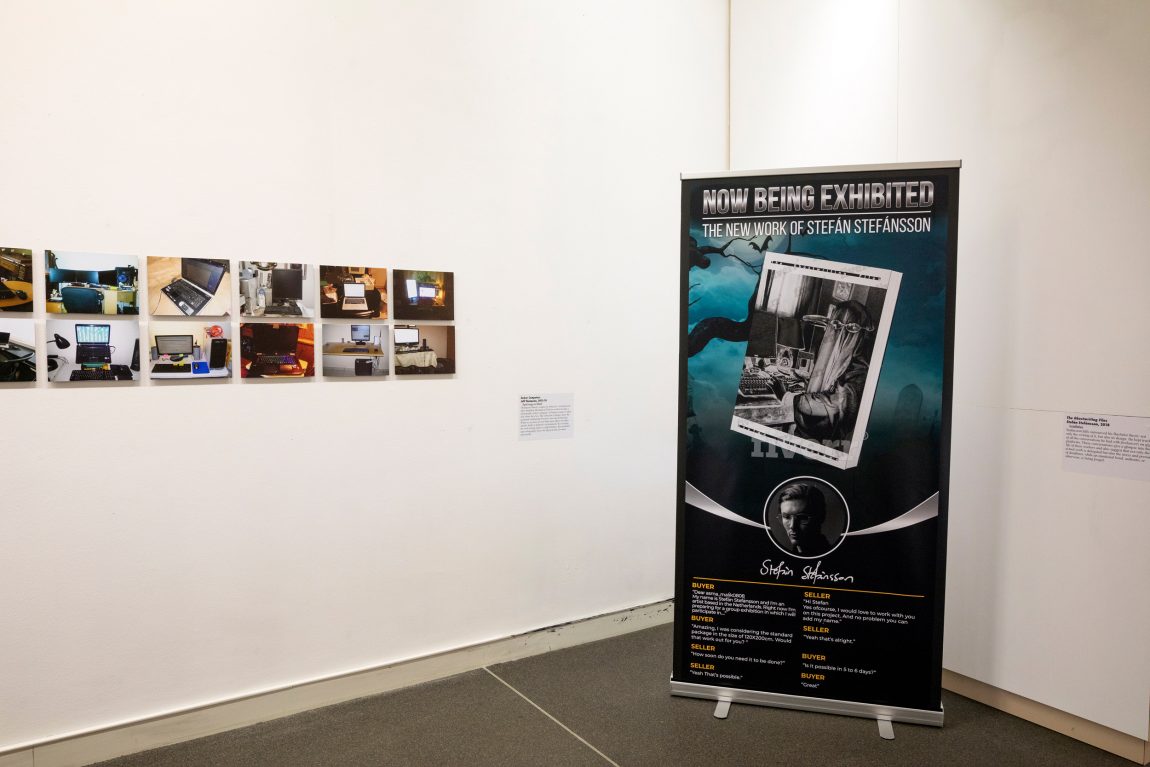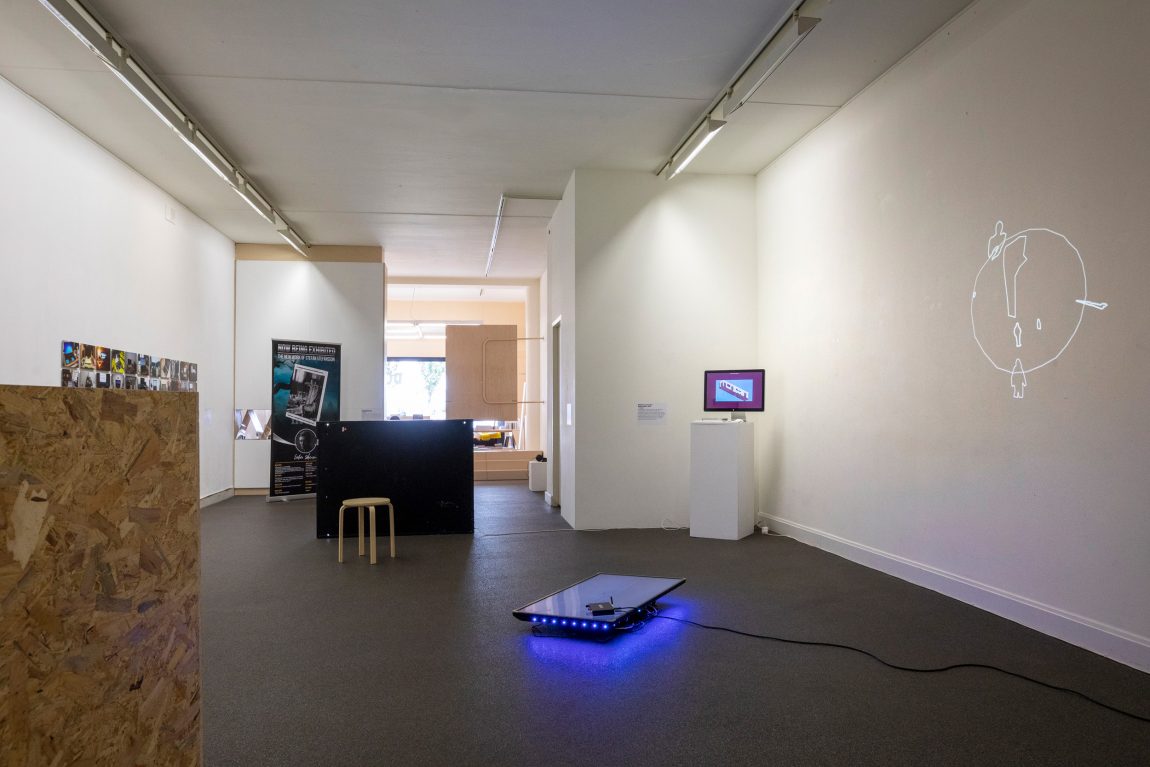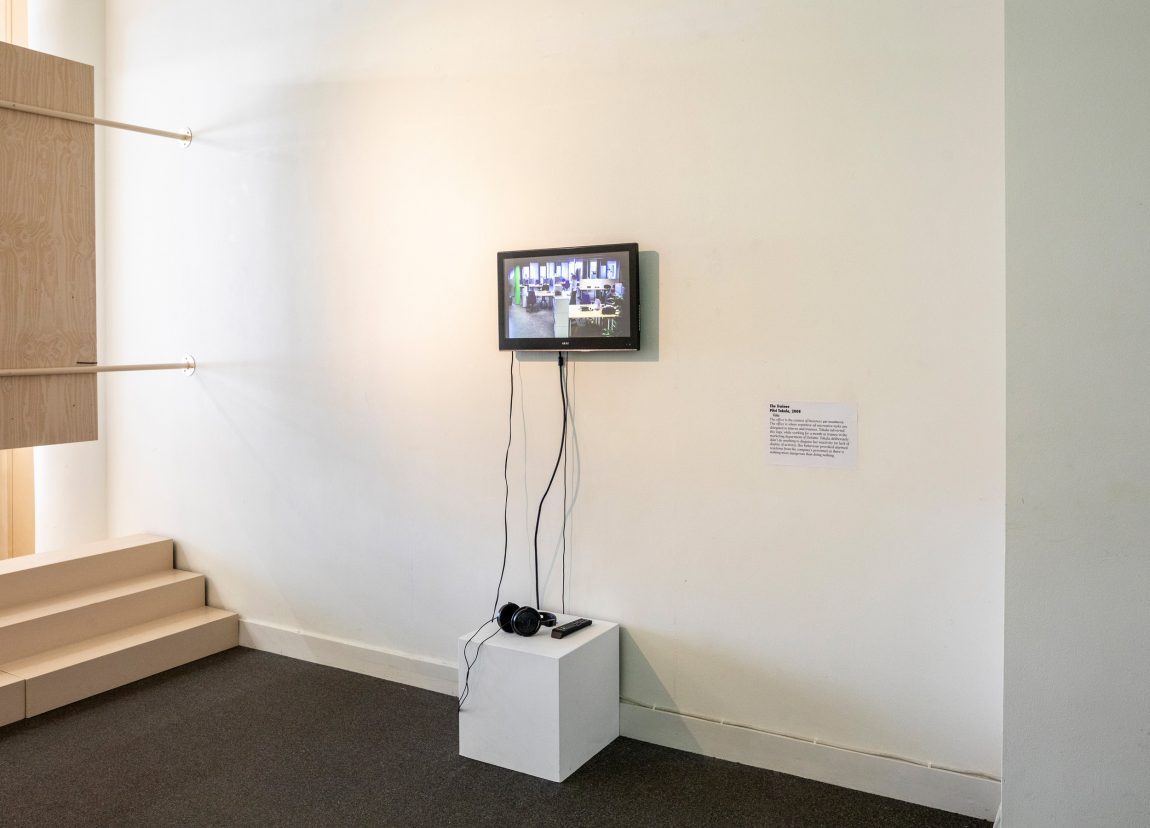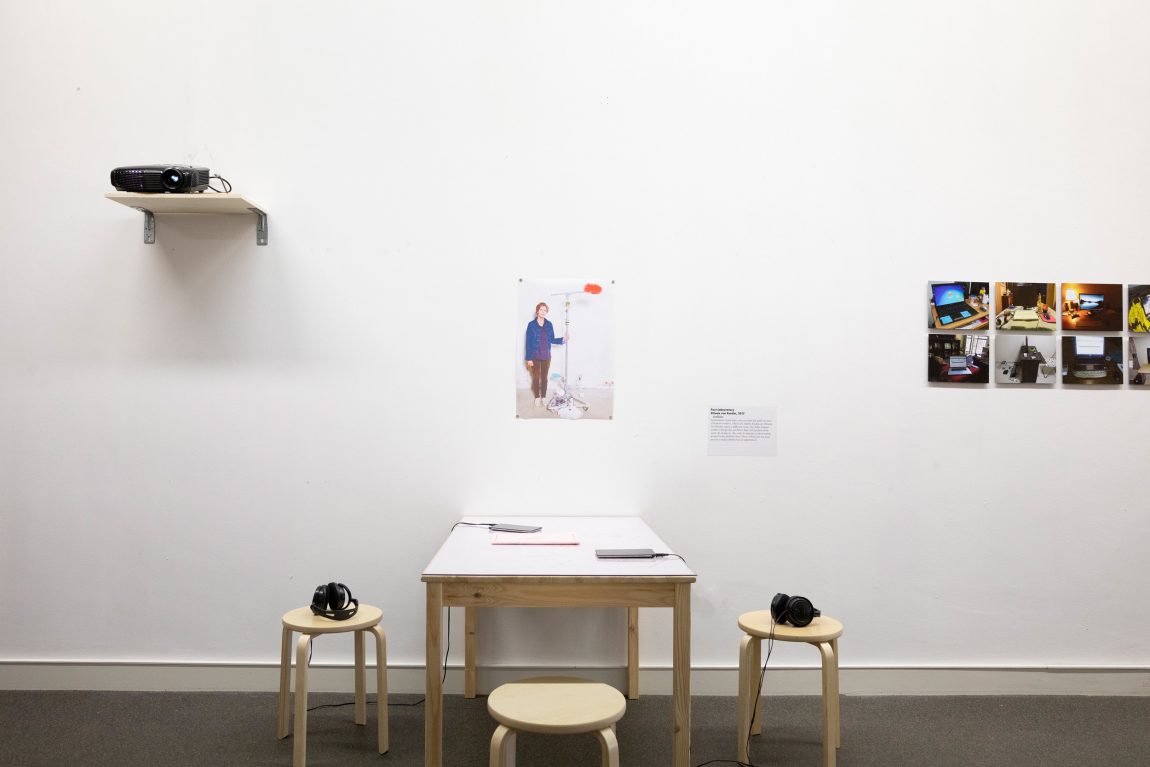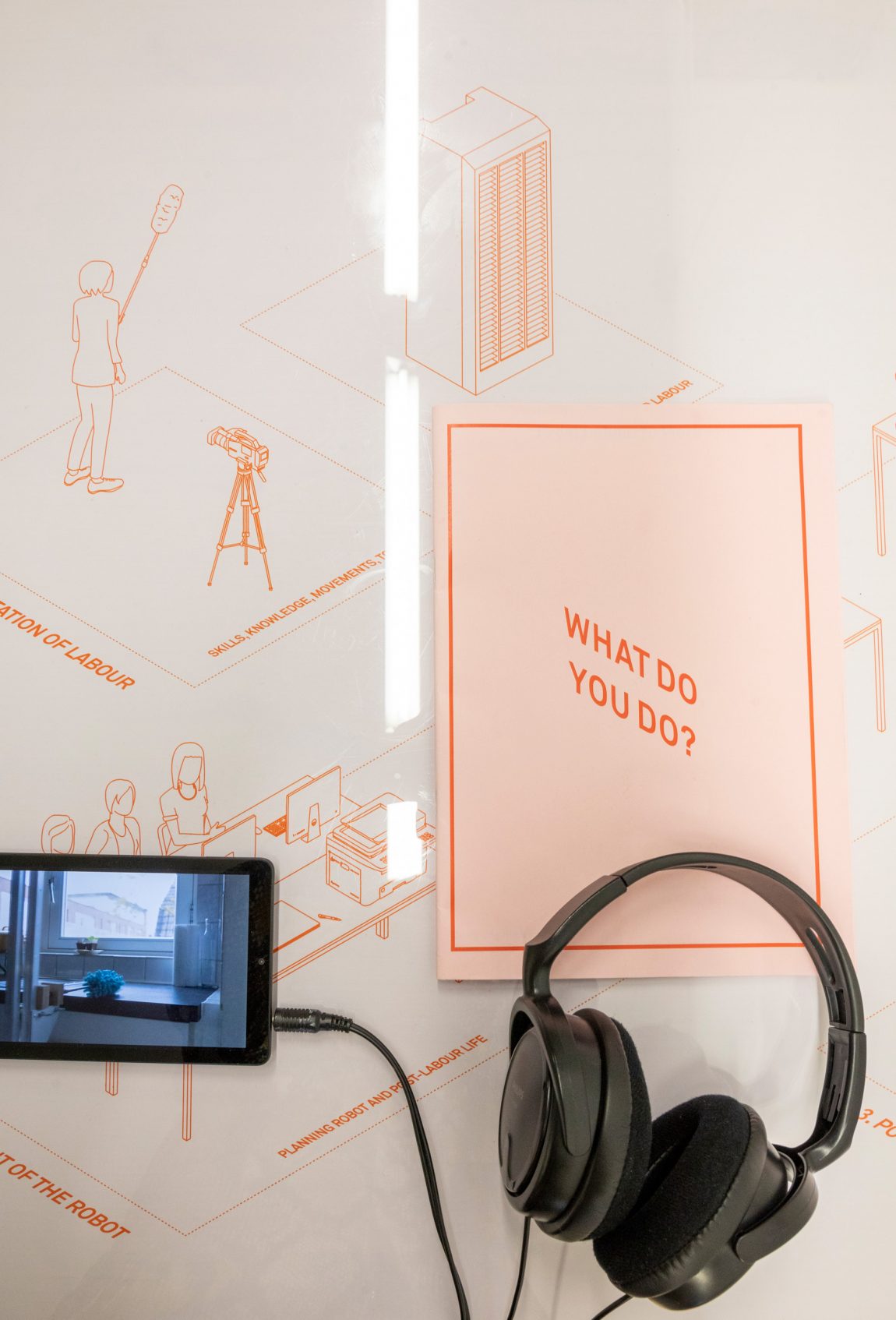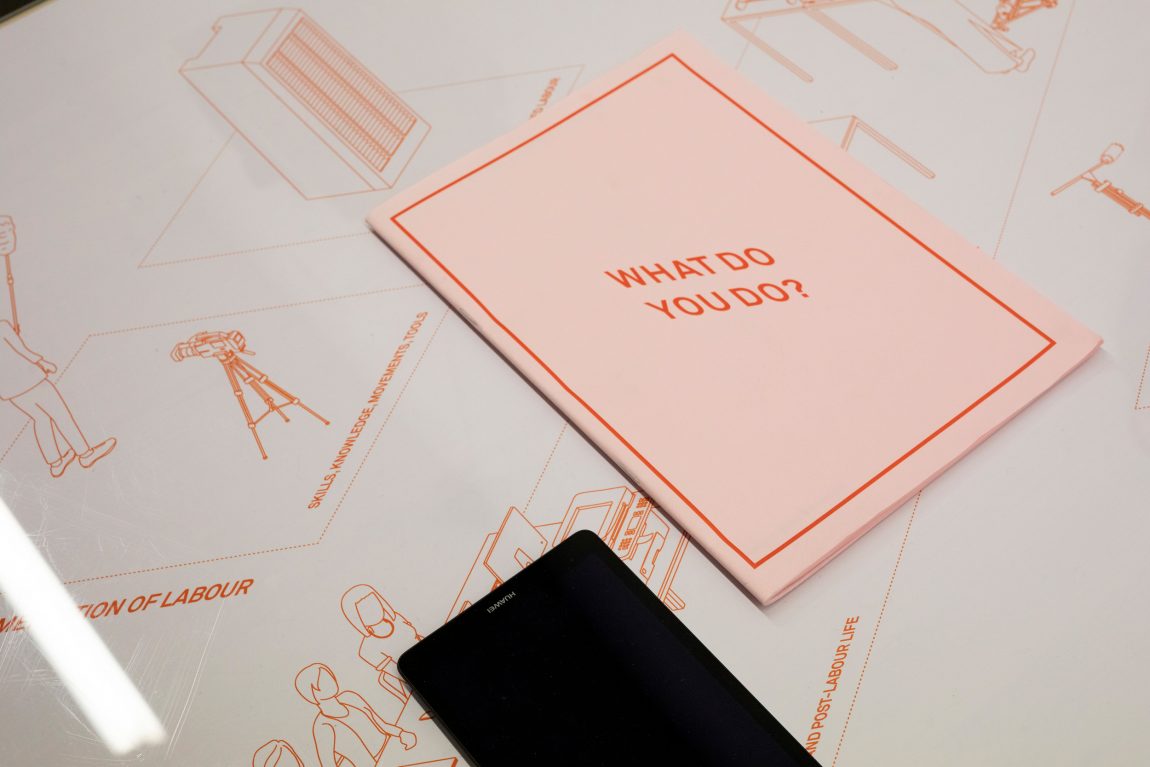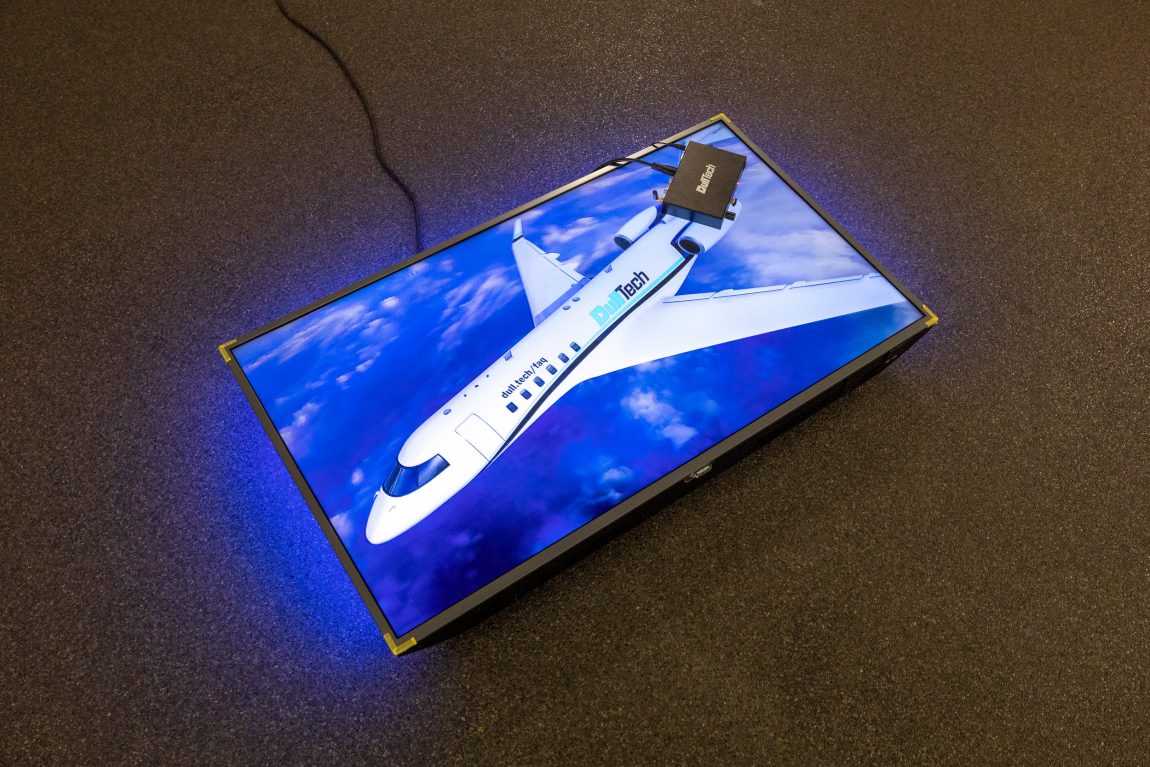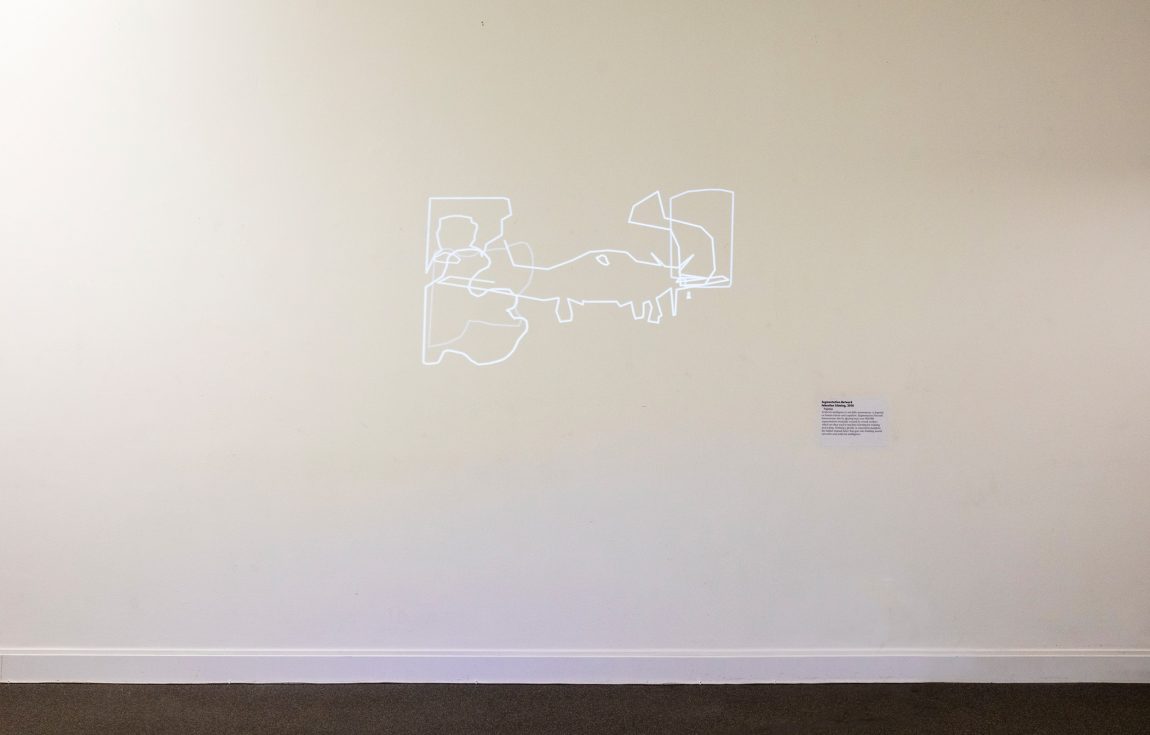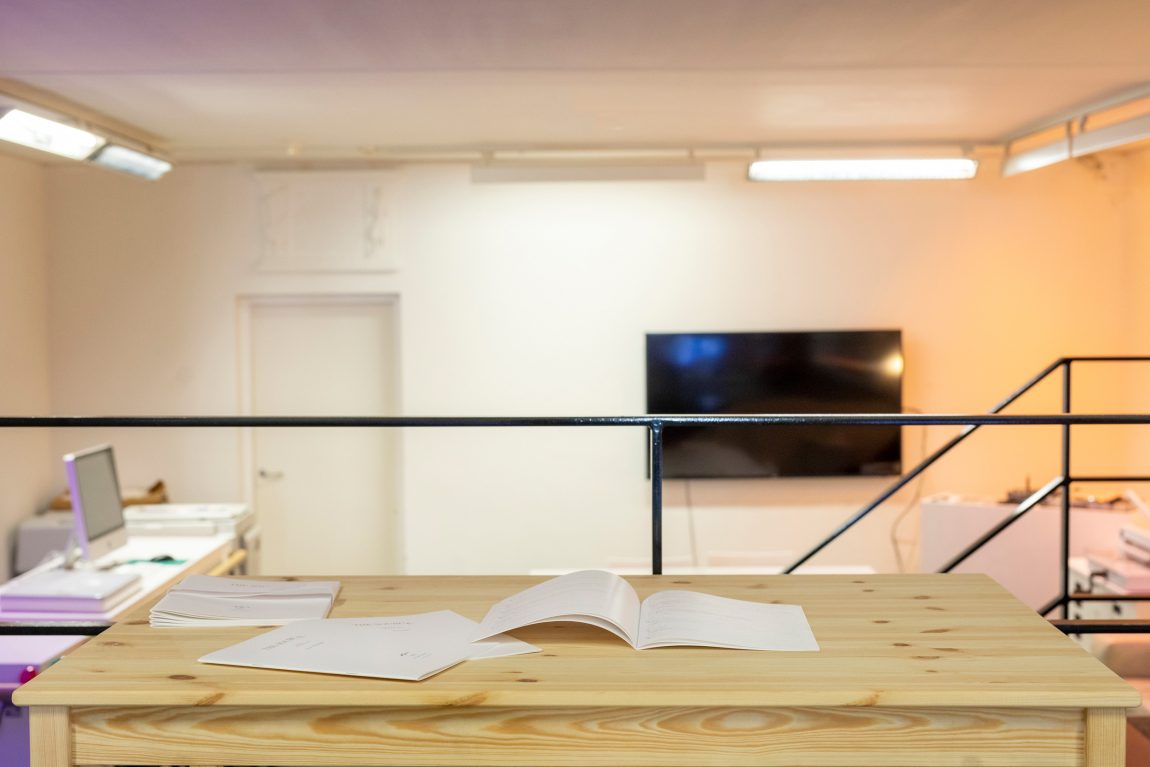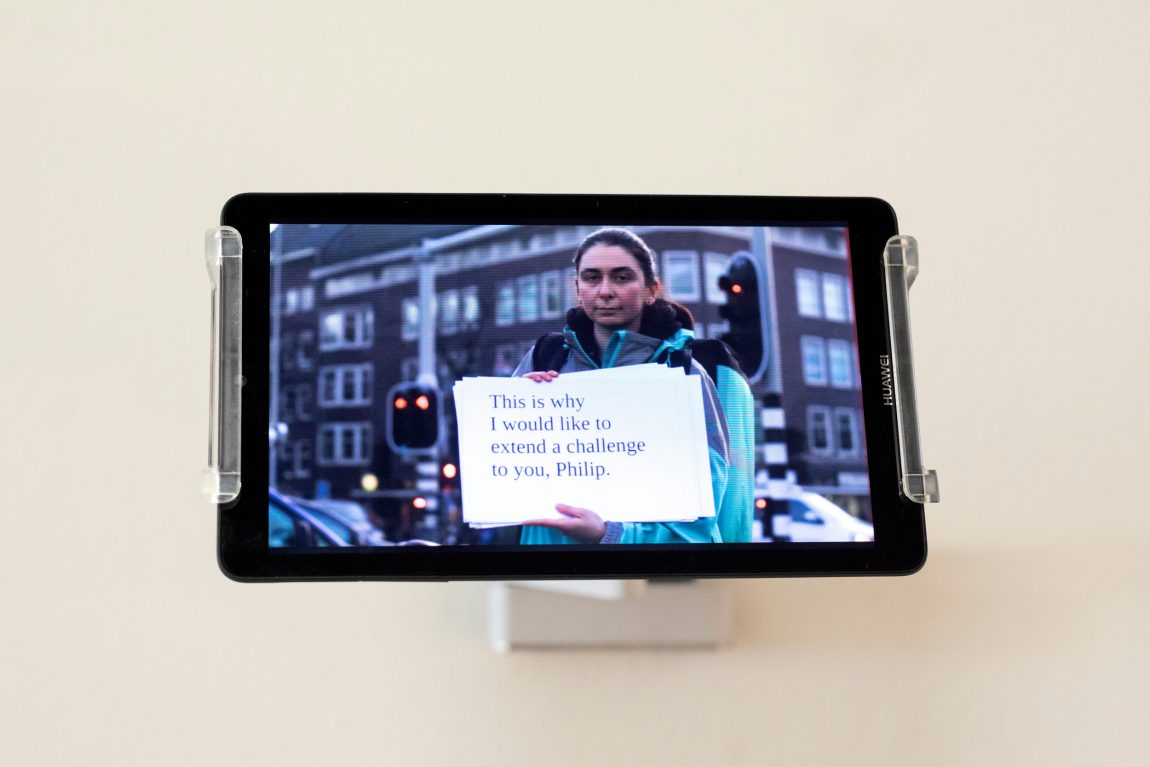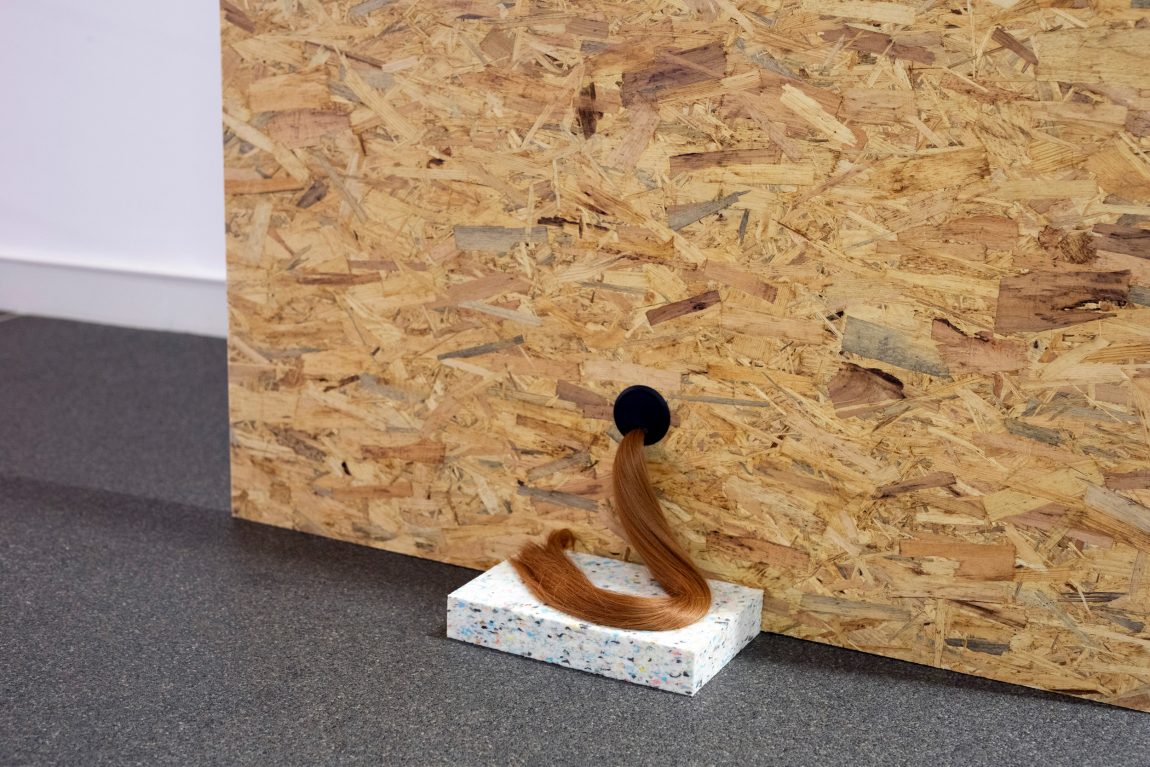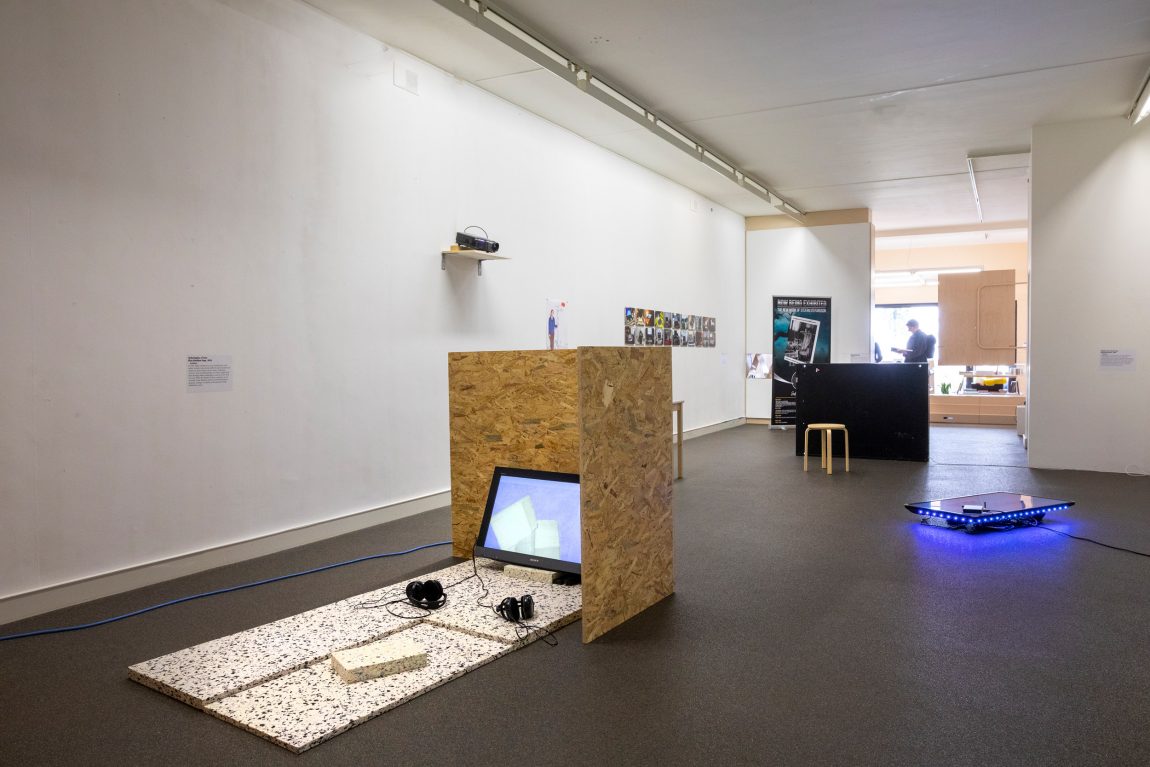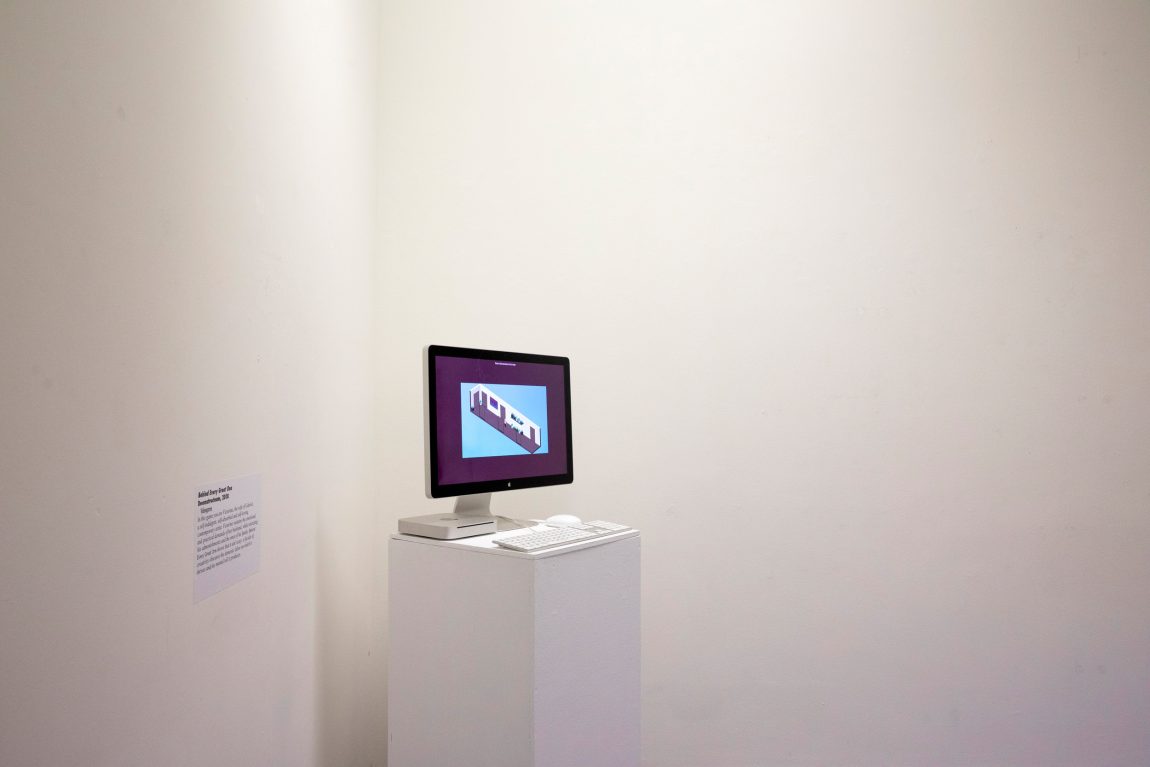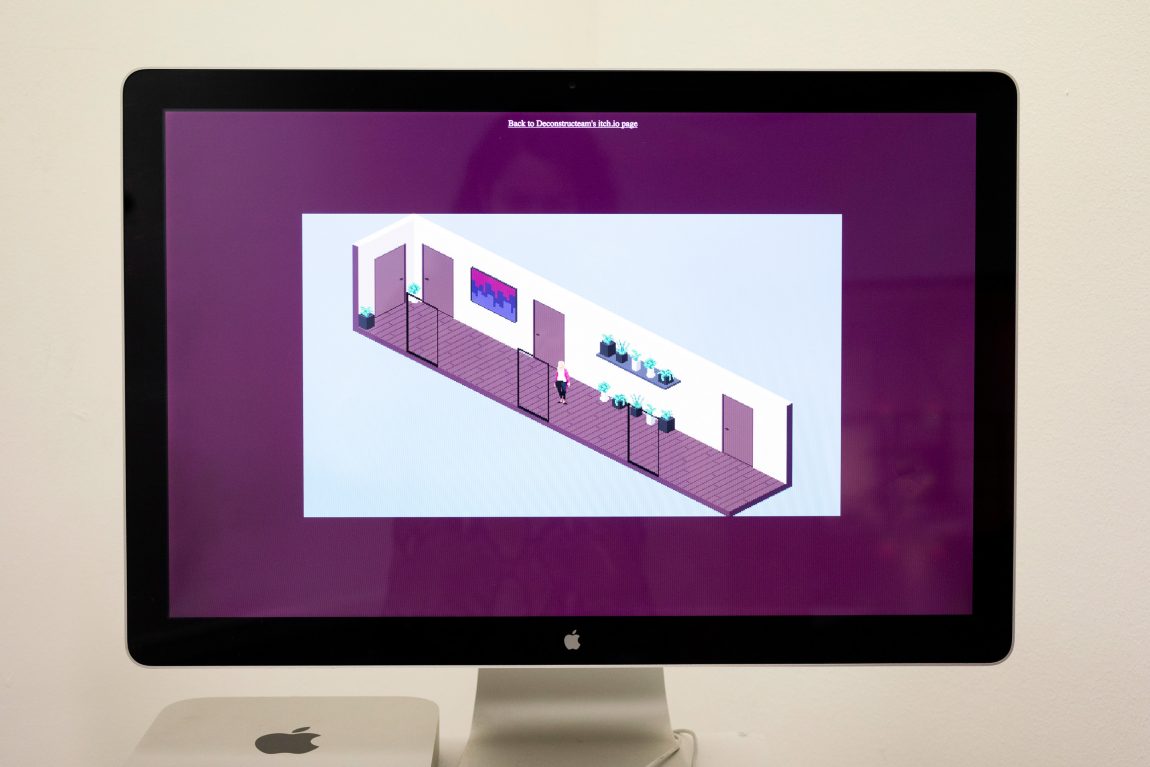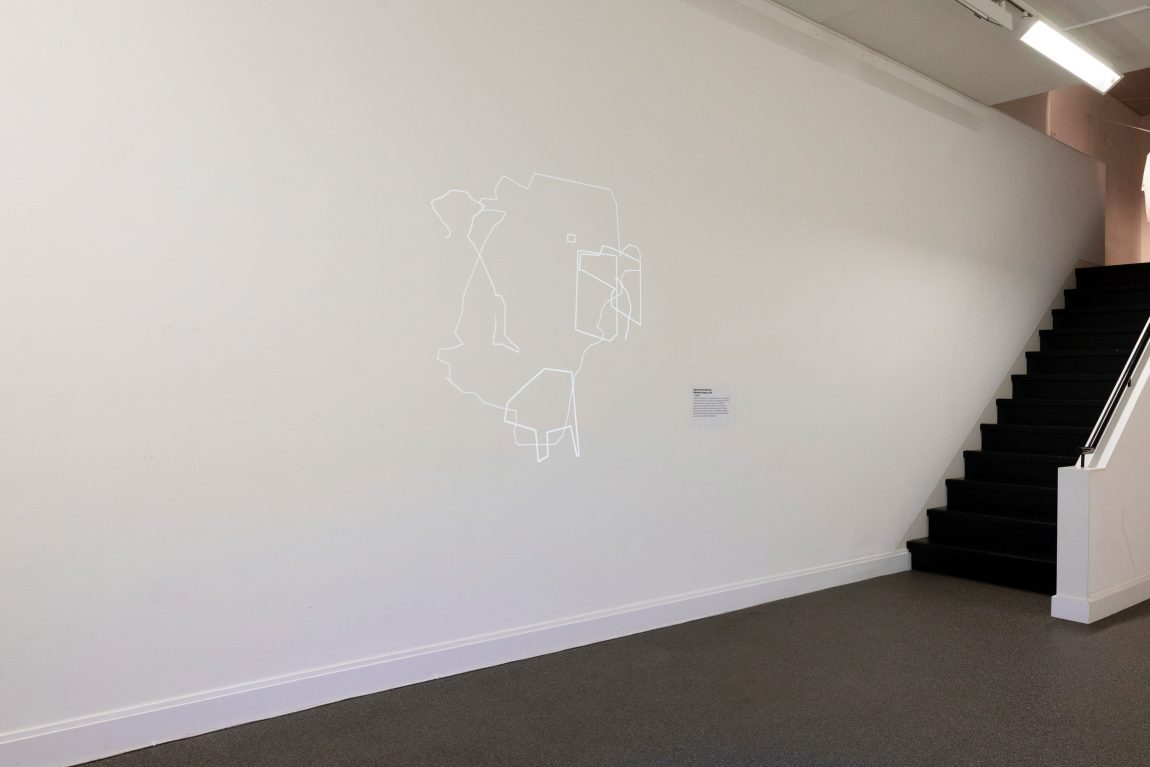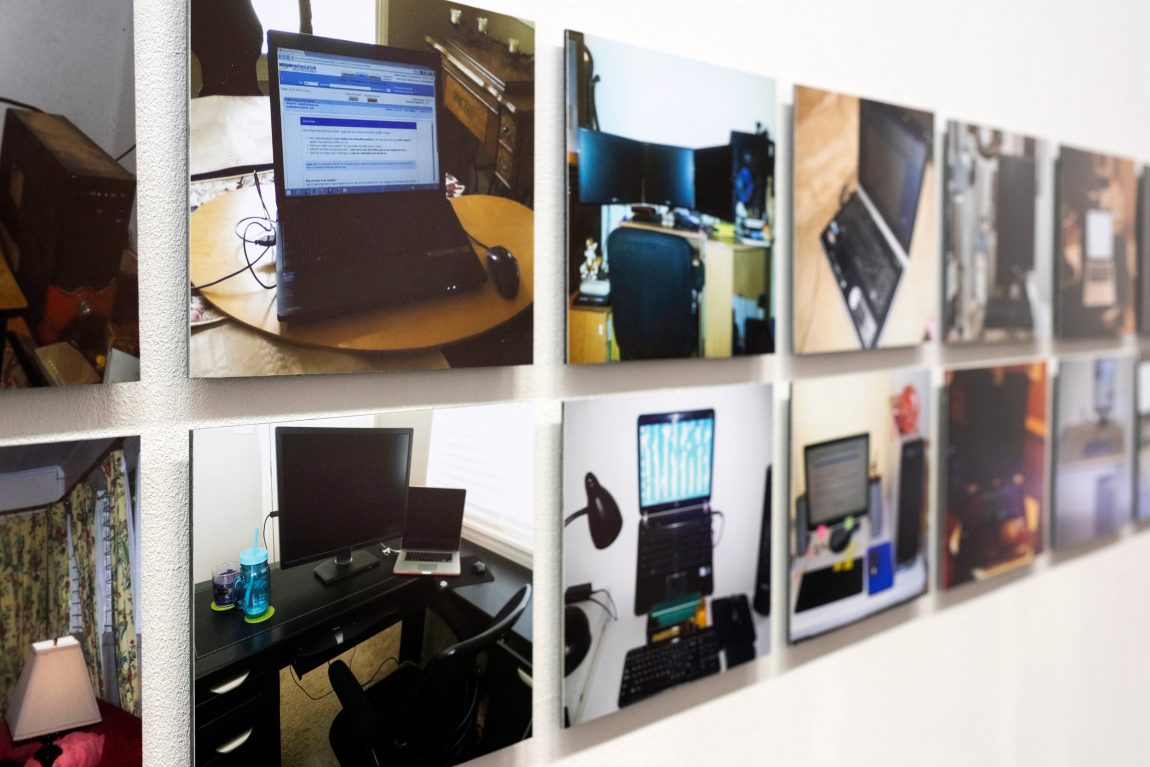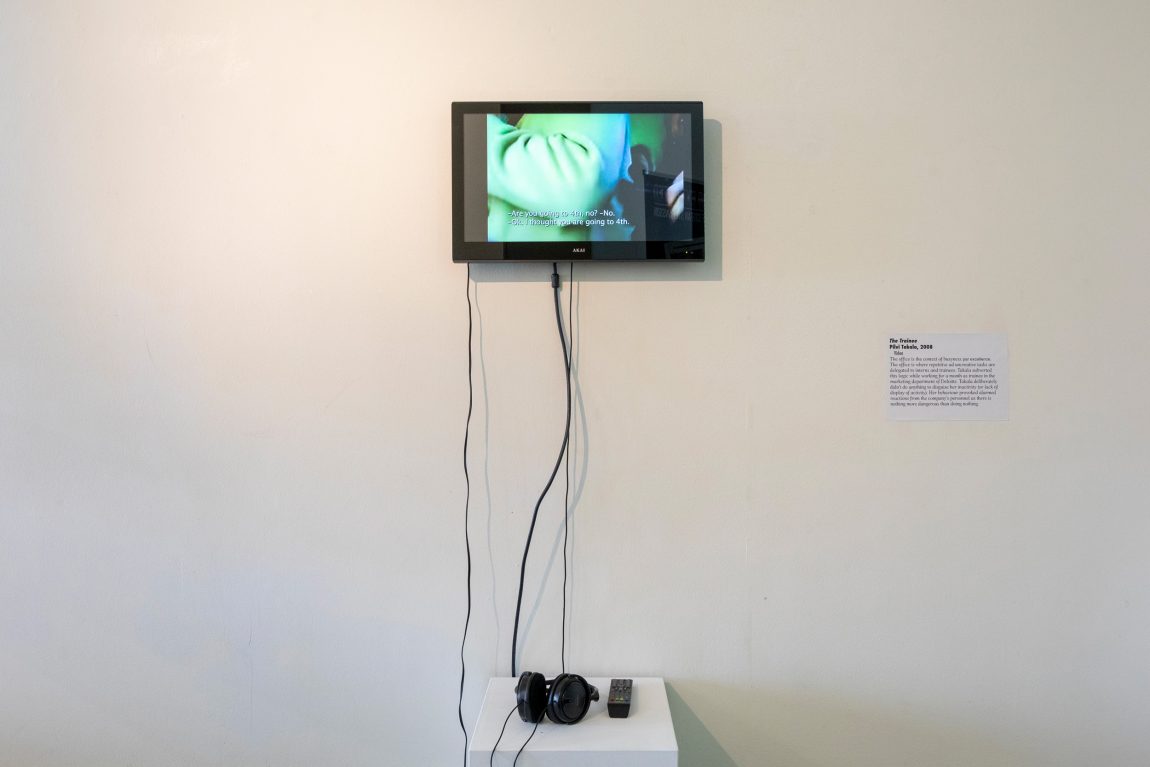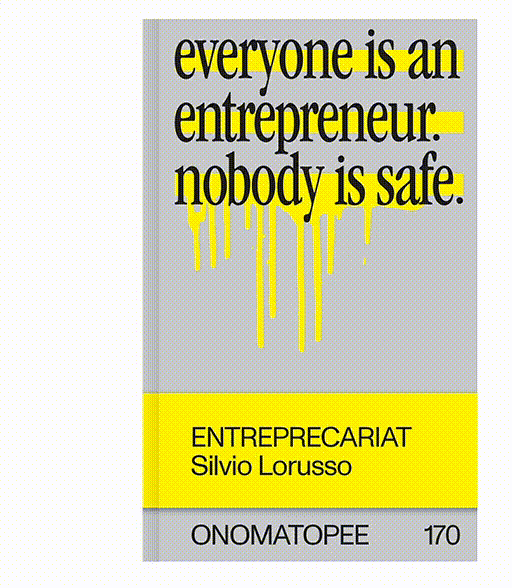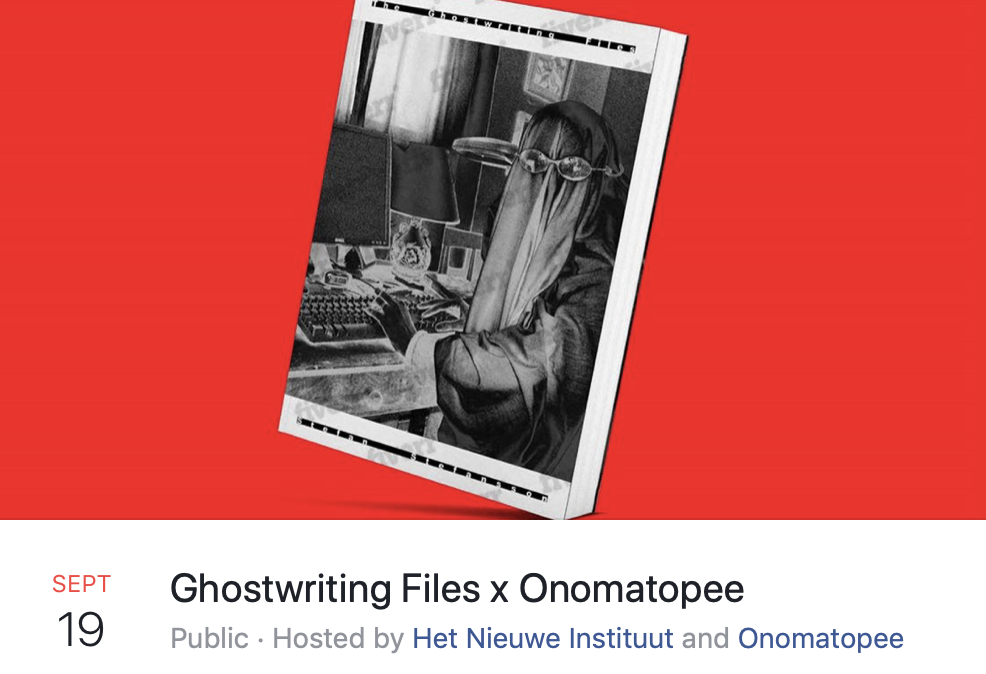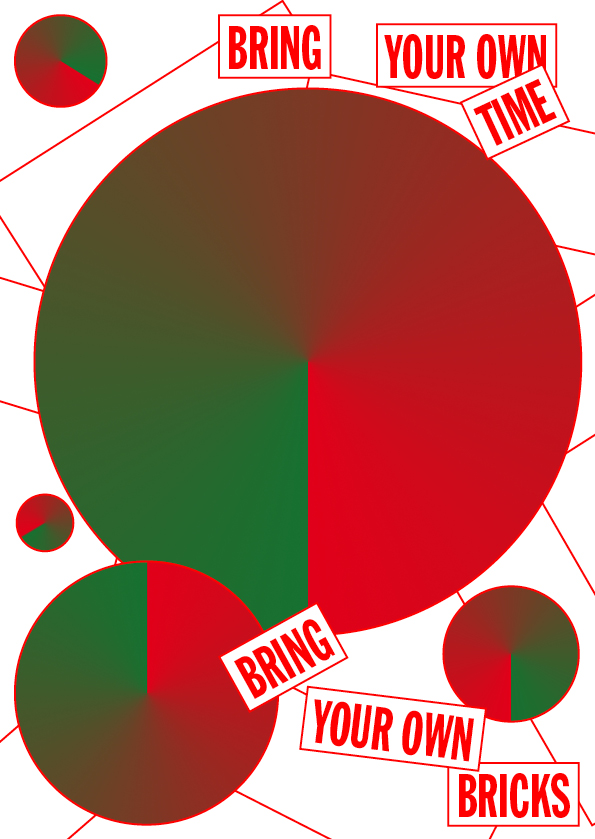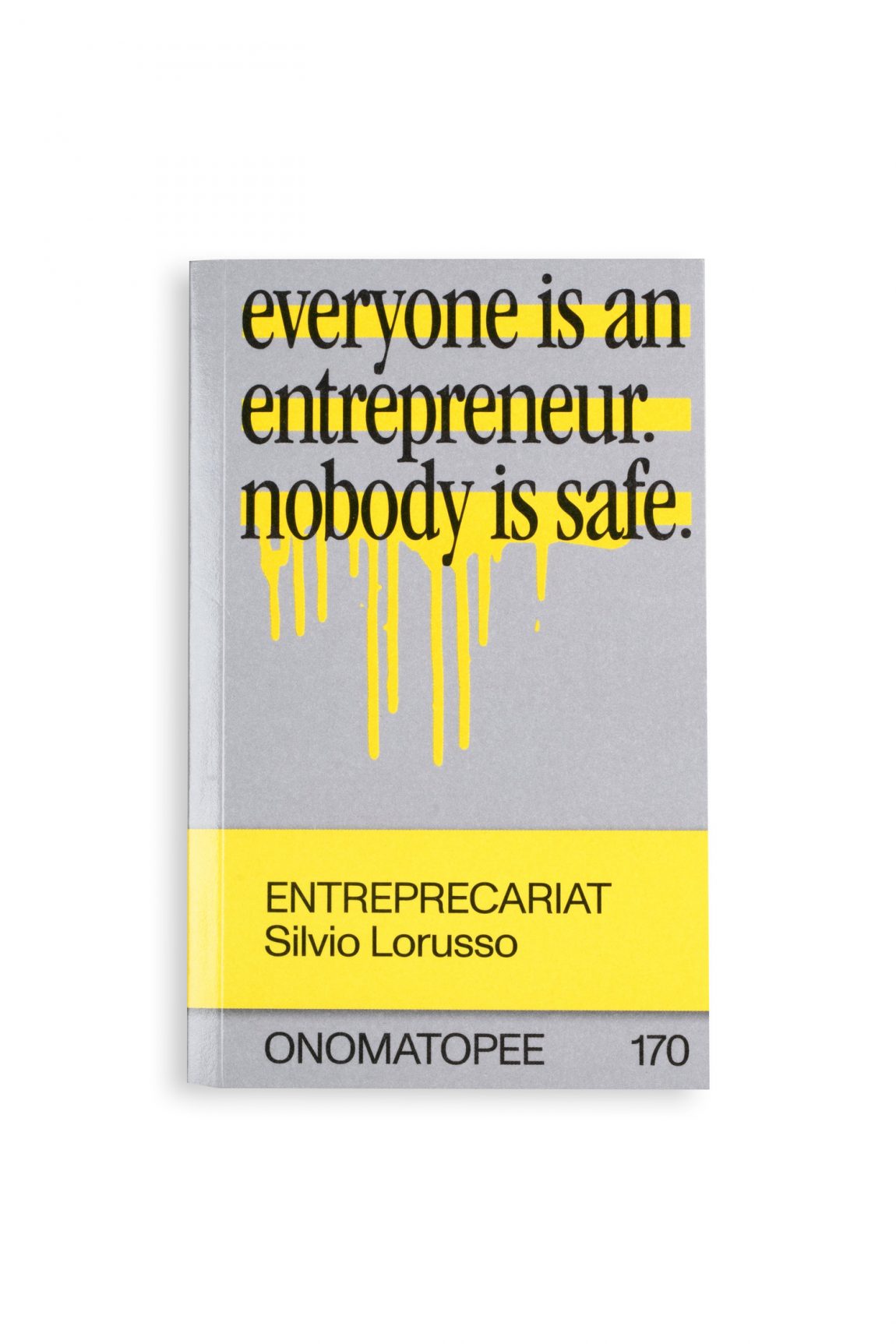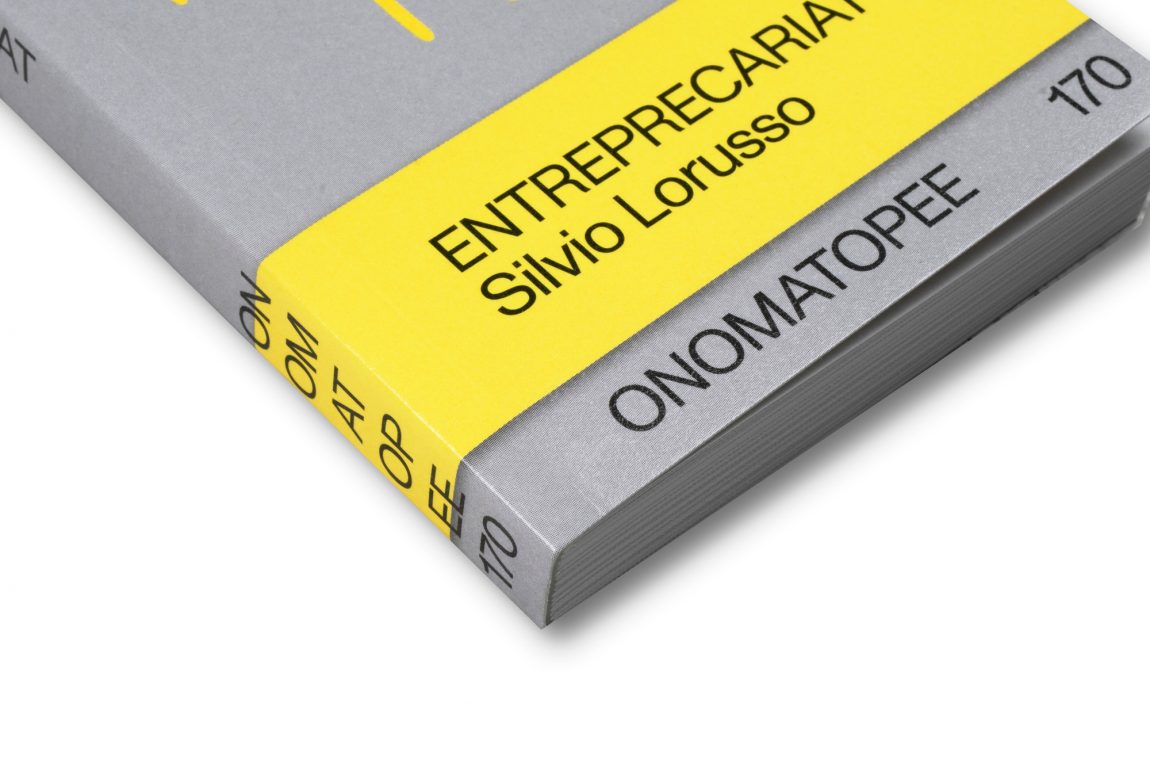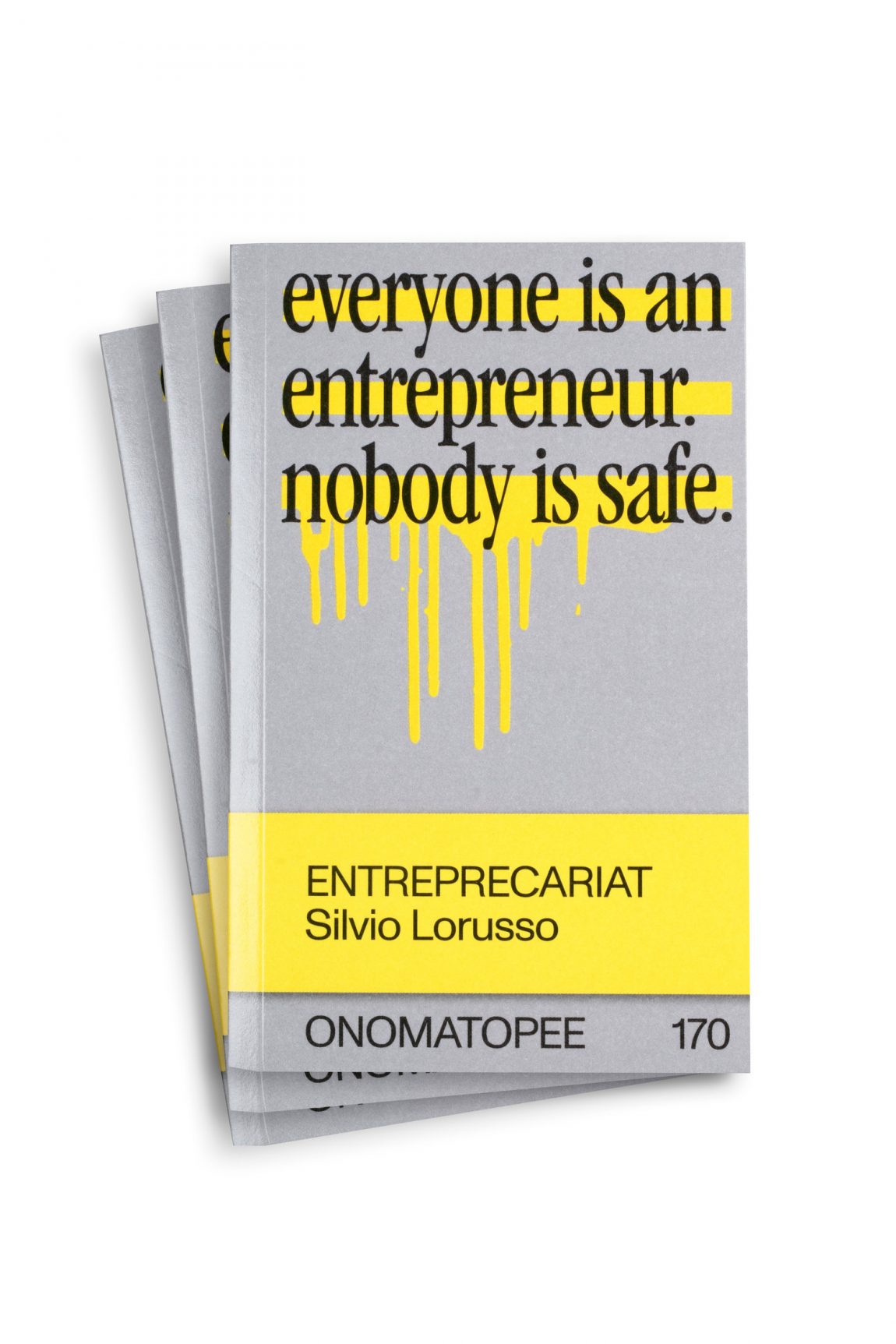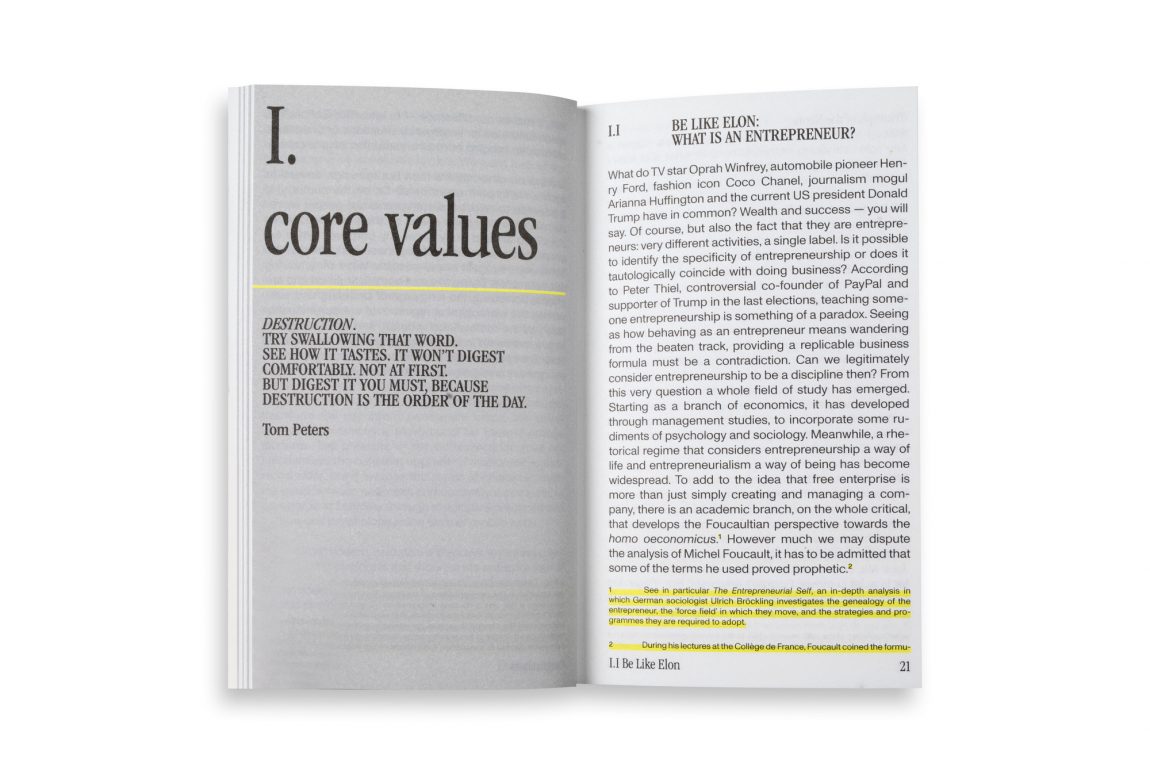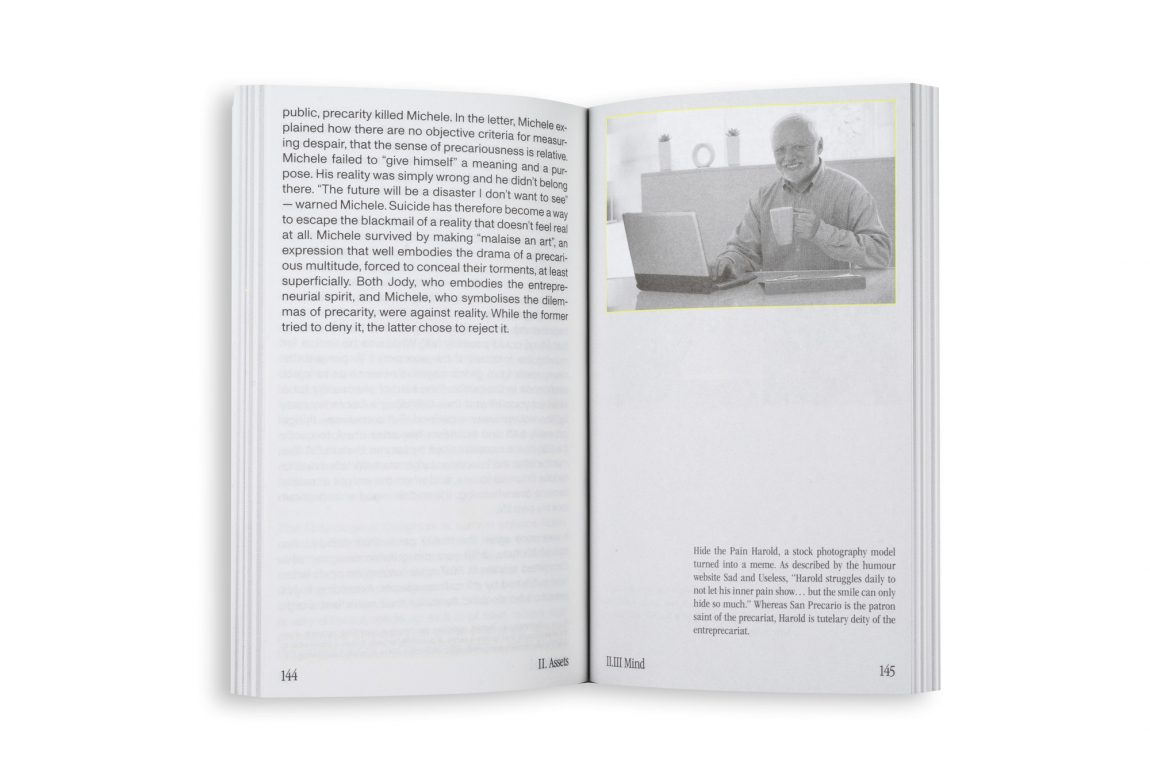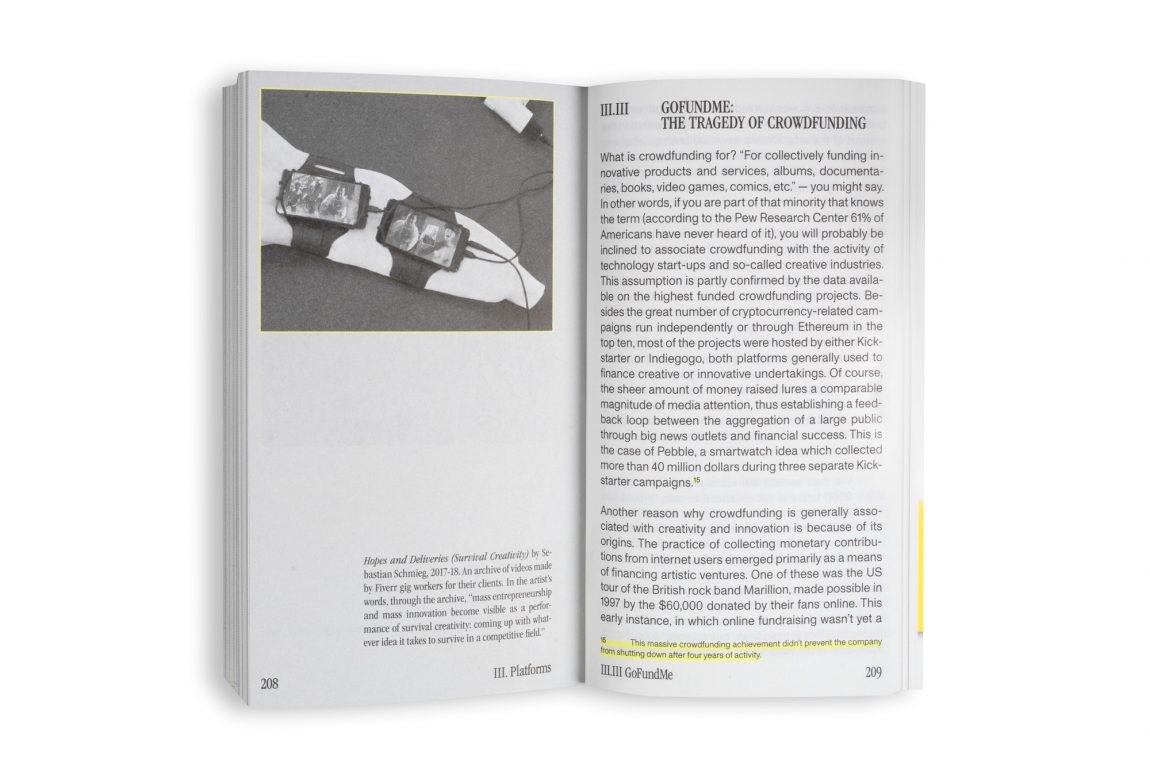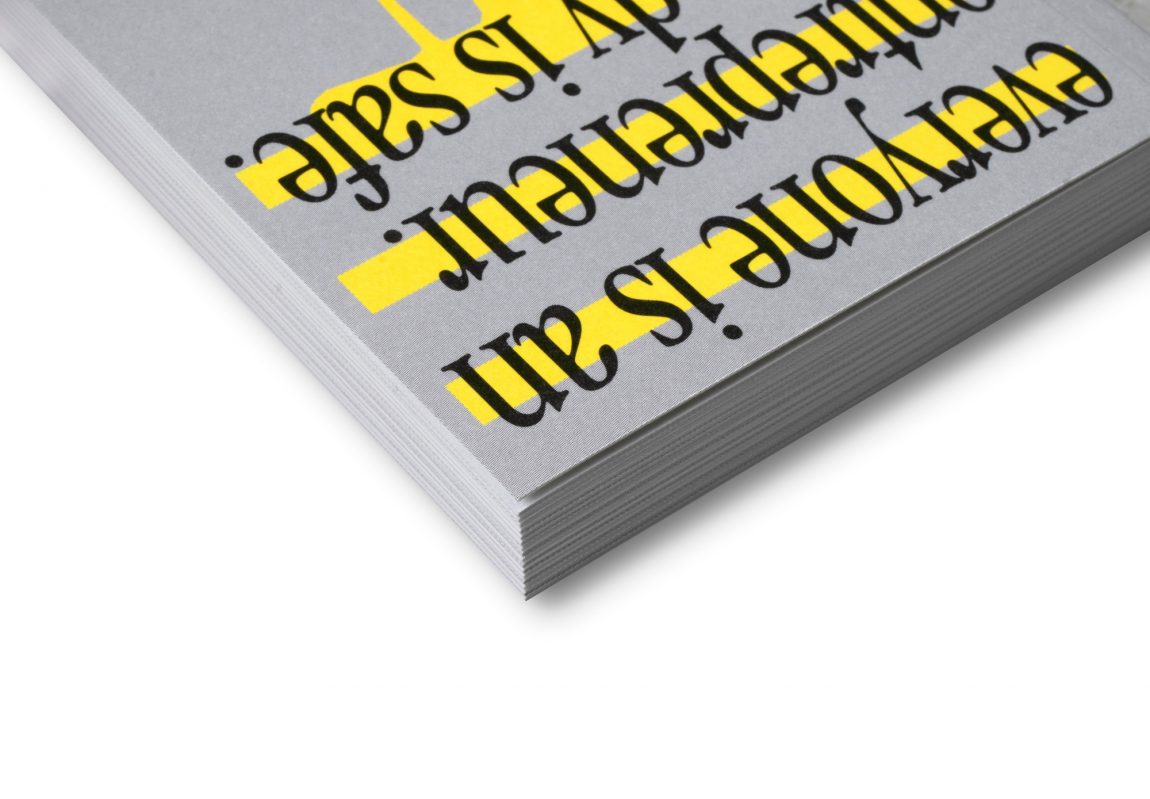Now that the prospect of full automation is once again getting traction, the shared hope is to delegate every task to intelligent machines. But as we await the full takeover of smart robots, work is delegated to machines and humans alike. It makes no difference to companies and entrepreneurs: while some machines begin to look human-like, some humans are disguised as machines, by means of seamless interface design or blatant deception. This is what Astra Taylor calls fauxtomation*.
"Do or Delegate” probes the asymmetrical power relationships shaping the ever-evolving landscape of work, which is still, for better or for worse, the foundation of the economy. Thus, the exhibition focuses on the present of work, a time when work is as present as ever. In this context, work is conceived as a dynamic resource that can be performed, delegated, outsourced, crowdsourced, transformed, destabilized, disguised, displaced, concealed and revealed, rejected and reclaimed.
What happens when social media users become neurons of a hive-mind ready to be consulted, when most endeavors become services that can be commissioned and purchased online, when people become software extensions, when online marketplaces shrink the global geography of freelancing. Where and how is value extraction taking place?
Ever since Laszlo Moholy-Nagy “ordered” his paintings by dictating instructions via telephone**, the idea that the artist should be the material executor of the artwork increasingly grew out of fashion. While this issue has been mostly understood within the frame of authorship, “Do or Delegate” recognises it first and foremost as a work-related matter. More specifically, the exhibition questions the entrepreneurial shift from art to art direction. What kind of labor goes into art? Who are the ones performing it? Which activities, side-jobs, formal and informal economies constitute or limit a practice?
///
Alongside the exhibition, Onomatopee will publish Entreprecariat by Silvio Lorusso, with a preface by Geert Lovink and a postface by Raffaele Alberto Ventura. The book, which will be launched this fall, explores and maps out the current entrepreneurial ideology from a precarious perspective. The Entreprecariat indicates a reality where change is natural and healthy, whatever it may bring. A reality populated by motivational posters, productivity tools, mobile offices and self-help techniques. A reality in which a mix of entrepreneurial ideology and widespread precarity is what regulates professional social media, online marketplaces for self-employment and crowdfunding platforms for personal needs. The result? A life in permanent beta, with sometimes tragic implications.
---
* Astra Taylor, “The Automation Charade”, Logic #5, 2018, https://logicmag.io/05-the-automation-charade/
** Some of Moholy-Nagy’s “Telephone Pictures” are collected by the Museum of Modern Art of New York, https://www.moma.org/collection/works/78747


